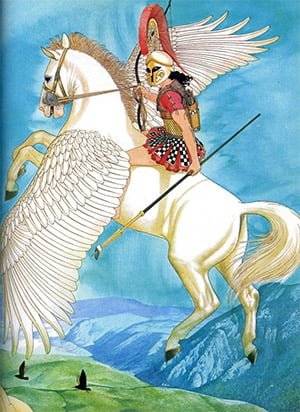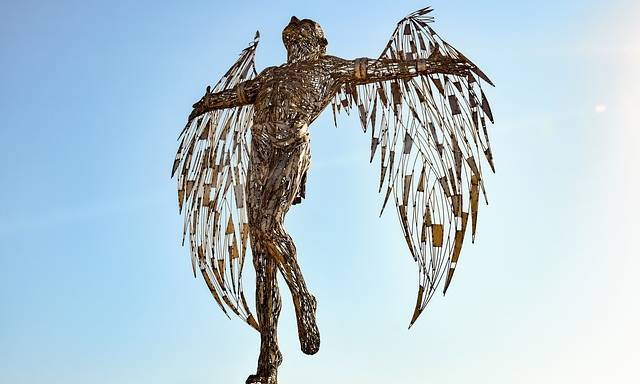The Desire to Fly in Greek Mythology
A Fascinating Journey of Human Ambition
From the Greek myth of Icarus to the legend of Bellerophon and Pegasus, the desire to fly has been a constant theme in Greek mythology. The ancient Greeks believed that humans were not meant to fly, and that it was the sole domain of the gods. Nevertheless, this did not stop humans from dreaming of soaring through the skies like a bird.
The Story of Icarus: The Limits of Human Ambition
The story of Icarus is perhaps the most famous Greek myth related to flying. Icarus and his father Daedalus were imprisoned on the island of Crete, and they decided to escape by making wings out of feathers and wax. Daedalus warned Icarus not to fly too close to the sun or the wings would melt, but Icarus was so enamored with the thrill of flying that he ignored his father’s warning. As a result, he flew too close to the sun and plummeted to his death.

source: https://www.greekmyths-greekmythology.com/myth-pegasus-bellerophontes/
The Legend of Bellerophon and Pegasus: A Heroic Journey to the Heavens
The legend of Bellerophon and Pegasus is another popular Greek myth about flying. Bellerophon was a brave warrior who sought to capture the winged horse Pegasus, who was believed to be the key to flying. Bellerophon finally caught Pegasus with the help of Athena, and he rode the horse into the heavens to slay the fearsome monster known as the Chimera.
The Symbolic Significance of Flying in Greek Mythology
The desire to fly in Greek mythology is not just a fanciful notion, but it also carries deep symbolic meaning. The wings represent freedom, ambition, and the desire to reach for the heavens. At the same time, the danger of flying represents the limits of human ambition and the dangers of overreaching.
Conclusion
The desire to fly in Greek mythology speaks to the timeless human ambition to explore the unknown and reach for new heights. Whether it is Icarus’ tragic downfall or Bellerophon’s heroic journey, these myths remind us that while the desire to fly may be alluring, it is also important to respect the limits of our own human nature.
References:
- Bullfinch, T. (1998). The age of fable: The illustrated Bulfinch’s mythology. Sterling Publishing Company, Inc.
- Hamilton, E. (2011). Mythology. Back Bay Books.
- Powell, B. (2008). Classical mythology. Pearson/Prentice Hall.
- Tripp, E. (1999). Crowell’s handbook of classical mythology. Thomas Y. Crowell Company.
- www.aviationfile.com



